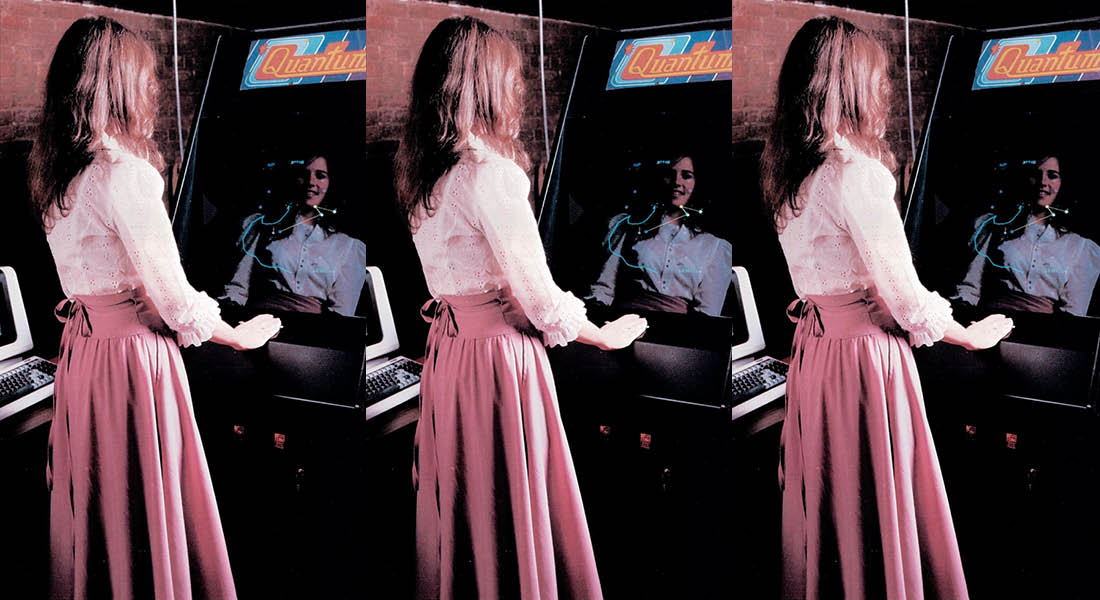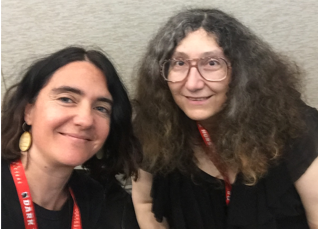Professor: There have always been women in gaming, but they are missing in the story-telling
The culture of computer games is perceived by many as predominantly male, but did you know that world's first eSports champion was a woman? And that some of the first and most popular computer games were developed by women? DIKU's Professor Pernille Bjørn aims to rewrite the history of gaming by including hidden stories about women’s important contributions.

In 2020, it has been 40 years since the world's first eSports championship was held on November 10, 1980. The game was Space Invaders, played on an Atari 2600 console. The winner was Rebecca Heineman – by fans also known as BurgerBecky – who was 17 years old at the time. The following year, she got her first job as a computer game programmer, and during her long – and still active – working life, she has developed more than 275 computer games.
Unfortunately, women like Rebecca Heineman, despite their important contributions to the history of computer games, have far from received the same attention over time as male gaming and tech personalities.
- Women have not become part of the “retro” narratives of computer games, which is problematic when we want more diversity in the tech industry. Computer games have historically been linked to the development of computer science as a subject, as games have often been used as a way to demonstrate superior software and hardware capabilities. As long as the fan culture's and the pop culture's stories about computer games do not include women, we risk that people with different backgrounds will not be able to see themselves as part of the subject, says Professor Pernille Bjørn.
Women created popular games
- A case in point is the game developer Dona Bailey who was the programmer behind Atari's arcade game Centipede. Centipede is one of the most successful arcade games in history and it has been used in several popular TV series and movies, for example, "Halt and Catch Fire" and "Captain Marvel". Back then, there was only one programmer per game. But many of the official sources about Centipede say almost nothing about Dona, but in return a lot about the male project manager, says Pernille.
Despite the fact that women helped to create popular games such as Centipede, computer games were marketed to boys and young men – a strategy that several researchers believe has contributed to the fact that women began slipping out of computer science.
- If we look at the statistics for how many women have studied computer science over time, we can see that the curve begins to fall from the early 1980s when computer games were heavily marketed to men. But that did not mean that there were no women who were interested in and worked with computer games, says Pernille.
They must be remembered to change the future
Because of this issue, Pernille Bjørn started the project Atari Women in 2018 during her Fulbright scholarship at the University of Washington where she decided to tell the stories of the forgotten women.
In the Atari Women project, Pernille has succeeded in finding 28 women who were part of the game development of the 1970s and 1980s in various leading companies in the field of computer games, including GCC, Atari Inc., and Parker Brothers. 13 of the women said yes to telling their story.

- Before we started, there were lots of stories about male game developers, but only very few about women. If the women are finally mentioned, very little is said about who they are. I have, of course, looked at why the women were forgotten, which often had something to do with the fact that they were forced to stay home after they had children. But my real research interest is to celebrate the work of these women and include them in history, says Pernille Bjørn.
The stories of the Atari women are all documented on the project's website, and this for a special reason:
- Our goal is to add all the women and their achievements to the history of computer games and computer science – especially on Wikipedia, as this location plays a crucial role for them to be remembered. Wikipedia requires external links for documentation, and with the Atari Women project we now have an official source for the first time, says Pernille Bjørn and concludes:
- Hopefully, it will help to adjust the history of computer games so it becomes clear that diverse gender identities are not new in gaming, they have always been there, and they are still here.
Topics
Related News
Contact
Pernille Bjørn
Professor
pernille.bjorn@di.ku.dk
Caroline Wistoft
Communications consultant
cawi@di.ku.dk
About Atari Women
AtariWomen is a research project aimed at celebrating the hidden stories of women and gender minorities who made crucial engineering contributions to Atari games in the early 70’s and 80’s. The project explores and challenges industry notions of who is and who should become a programmer, engineer, and designer.
In addition to collecting and disseminating these stories, the project's researchers and participants have also designed and implemented a number of design artifacts that tell the women's stories. These artifacts include collectibles for computer game fans, art installations, and a new version of the legendary Atari game Pac-Man, in which the characteristic yellow cheese is replaced by a woman who eats the numbers “0” and “1” and is hunted by software bugs. All artifacts can be found on Atari Women's website.
The project is led by Pernille Bjørn, professor at DIKU, and by Daniela Rosner, associate professor at the University of Washington. Pernille Bjørn also leads the project FemTech, which focuses on the lack of diversity in the tech industry and examines how we can improve it.
